Escalating concerns over electoral integrity loom large ahead of Ghana’s 2024 elections
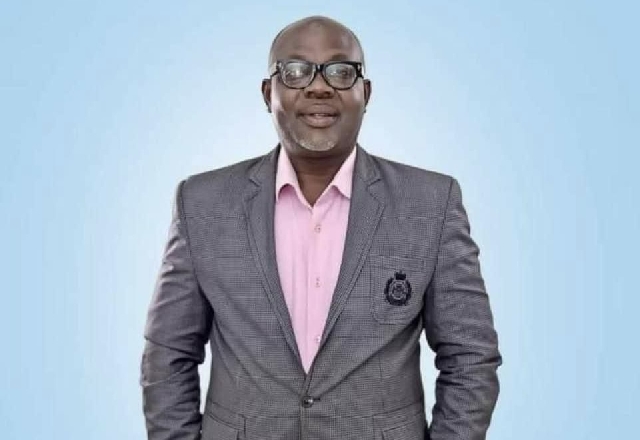 Eric Ahianyo
Eric Ahianyo
As Ghana gears up for the 2024 general elections, the shadow of potential electoral fraud looms large, casting doubts over the democratic integrity of the polls. The opposition National Democratic Congress (NDC) has intensified its scrutiny of the voter register. The party now demands a forensic audit to address significant discrepancies and irregularities it identified.
Following last Tuesday’s ‘Enough is Enough’ demonstration in the sixteen regional capitals and the presentation of their petition to the Electoral Commission, the NDC, according to the Director of Elections and IT, Dr Edward Omane Boamah will meet on Monday, September 23, with civil society organisations and diplomatic institutions to present the party’s case for an audit.
Key issues that have been highlighted by the NDC and which reveal a pattern of inconsistencies and potential fraud include: 1. Illicit Voter Additions: Approximately 243,540 voters were improperly added to the 2024 electoral roll, with some instances of repeated entries.
1. Illicit Voter Additions: Approximately 243,540 voters were improperly added to the 2024 electoral roll, with some instances of repeated entries.
2. Untraceable Voter Transfers: Over 15,000 voter transfer paths cannot be accounted for, raising red flags about the possibility of bogus registrations.
3. Missing Voter Entries: Close to 4,000 voters documented in 2023 are missing from the 2024 provisional register, suggesting a lapse in record-keeping or, worse, deliberate omission.
4. Accounting Anomalies: An additional 2,094 voter transfers were noted, which were not reflected in the Absent Voter List as mandated by law, indicating procedural violations.
5. Data Corruption: Numerous files essential for the administration of elections are corrupted, posing significant risks to the election process.
As Dr Omane Boamah has noted, these findings are just the ‘tip of the iceberg’, signalling potentially systemic flaws within the EC’s processes that could undermine electoral outcomes.
The implications of these irregularities extend beyond administrative oversights, posing serious threats to Ghana’s democratic fabric. The integrity of the voter register is paramount in ensuring that election outcomes reflect the true will of the people.
If compromised, it could not only delegitimise the electoral results but also erode public trust in the country’s democratic institutions.
To tackle these grave concerns, the NDC advocates several corrective measures:
1. Comprehensive Forensic Audit: A detailed and transparent audit could reveal the extent of manipulation and provide corrective pathways to rectify the voter register
2. System Vulnerability Assessments: It is crucial to prevent future unauthorised activities by identifying and addressing vulnerabilities within the Commission’s systems.
3. Timely Corrections: Establishing a clear timeline for correcting these irregularities is critical to ensure a credible voter register before the onset of election-related activities.
NDC’s Strategic Proposals to Enhance Electoral Integrity
The NDC has not only highlighted problems but has also put forth strategic proposals to restore confidence in the electoral process. These include:
Stakeholder Engagement: They have urged the EC to convene an emergency meeting with all political parties, civil society, and international observers to discuss these concerns openly.
Public Verification: Following the audit, the voter register should be re-exhibited, allowing every voter to verify their details and ensure all entries are legitimate and accurate.
According to the NDC, these steps are essential to safeguarding the transparency and fairness of the elections and ensuring that they reflect the genuine electoral will.
In the meantime, the ongoing discourse around electoral integrity in Ghana reflects a broader challenge facing many democracies worldwide. It highlights the necessity for continual vigilance and proactive measures to safeguard electoral processes against fraud and manipulation.
The Electoral Commission’s response to these allegations and its subsequent actions will be pivotal in determining the credibility of Ghana’s democratic processes in the future. It has so far remained adamant that there will be no need for a forensic audit.
As the international community watches, resolving these issues will serve as a testament to Ghana’s commitment to democratic principles and resilience in overcoming electoral challenges.
The actions to be taken in the coming weeks by the Commission will be crucial in defining the trajectory of Ghanaian democracy and its adherence to the principles of fairness, transparency, and accountability.
On the domestic front, resolving these electoral integrity issues will impact the nation’s social fabric. Public confidence in the electoral process is a cornerstone of civic engagement and national unity.
Ensuring a transparent electoral process that effectively addresses the highlighted concerns can strengthen civil society, reinforce the rule of law, and potentially lead to a more engaged and informed citizenry.
Conversely, not addressing these issues may exacerbate cynicism towards governance, increase political apathy, and lead to heightened tensions or civil unrest.
In essence, the required actions are not just about rectifying names on a voter list; they are
about reaffirming a commitment to democratic ideals and ensuring that governance remains
firmly rooted in justice and equity.
The people’s voices must be heard justly, equitably and fairly, without fraud or manipulation.
This is a defining moment for Ghana—one that will either reinforce its democratic credentials or raise significant concerns about the integrity of its electoral processes in the eyes of both its citizens and the global community.
The road taken will significantly shape the country’s democratic trajectory for years to come.
By Eric Ahianyo, a senior Ghanaian journalist and broadcaster.
Trending Features

Analysis of 2024 Presidential and Parliamentary results
04:47
The golden gamble of the Gold Coast is ‘galamsey’
11:48
Was Dr Agordzo demoted from Superintendent to Deputy for Misconduct?
09:19
Mahama's finance minister must exude confidence, be pragmatist & politically correct
07:36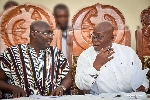
When party loyalty leads: Lessons of a democratic dictatorship and the troubling truths of not being truly Ghanaian
03:54
Mahama’s historic victory: How Lordina Mahama, Julius Debrah & Seidu Agongo stood the test of loyalty
03:26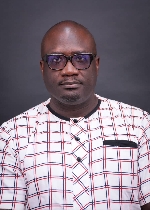
Ghana witnessed the most impactful creatives campaign by any political party in history this year – Kojo Preko Dankwa
02:05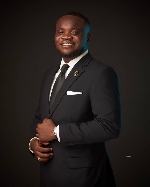
Renewed hope for Ghana’s poultry industry
16:52
Agordzo the zero rebel: Zero discipline, zero integrity and zero credibility
09:22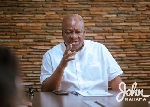
Resetting Ghana together: A call to unity of purpose for dear nation
09:32



